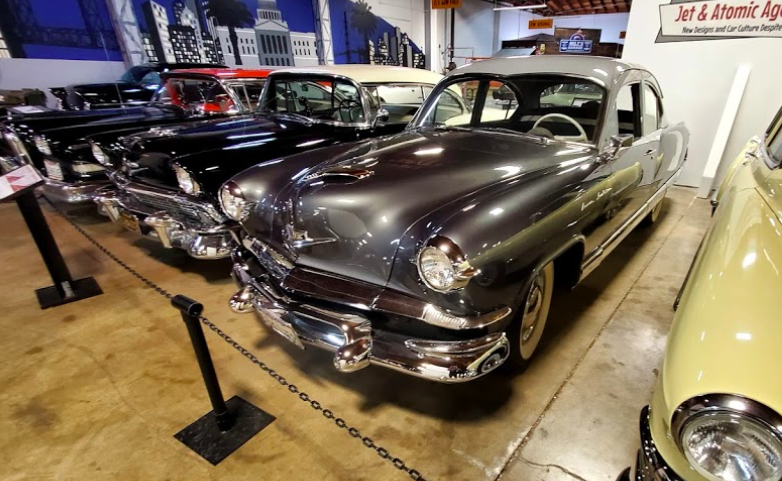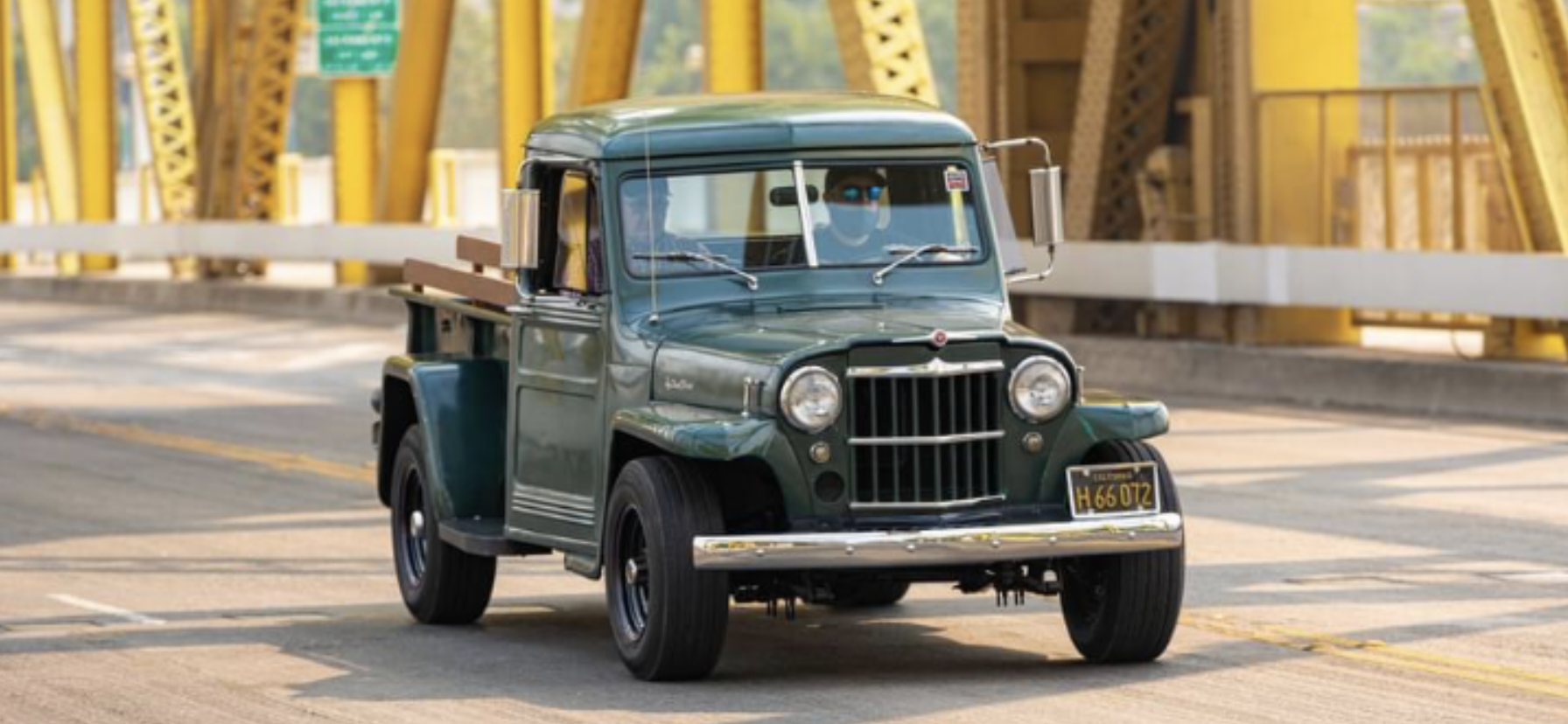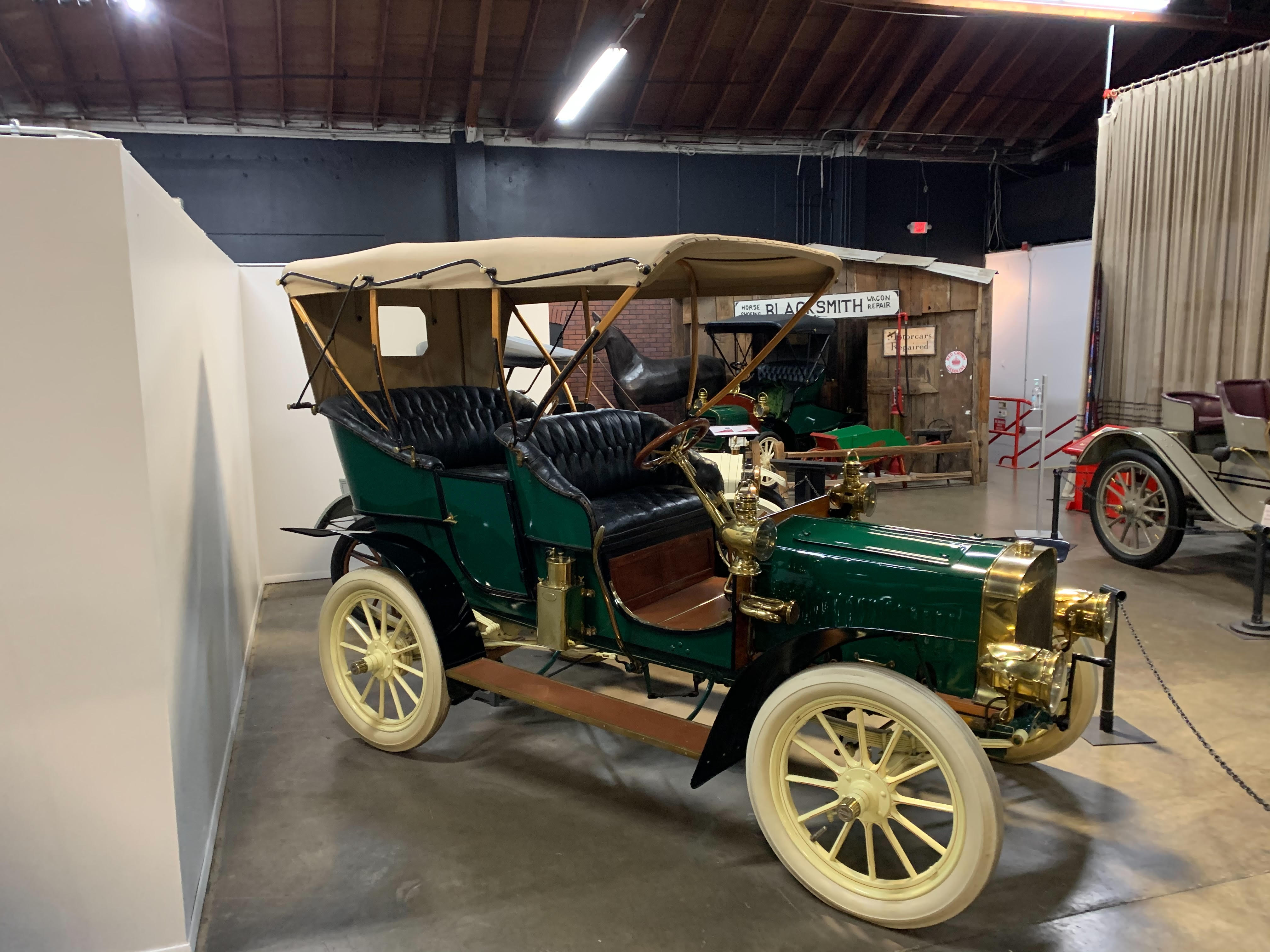Waxing Poetic: Secrets Of A Museum Detailer

Some people see a vehicle as a way of getting from Point A to Point B. Terry Emery sees them as artwork.
The detail manager for California Automobile Museum walks the floor of the Sacramento, Calif., exhibit the way a college student peruses masterpieces at the Louvre. In the seven years as detail crew leader, Emery has picked up quite a few lessons on maintaining a vehicle’s luster.
For starters, dust is the enemy. Microscopic impurities such as dust can permanently scratch delicate surfaces.
“About three times a year I buy a big bundle of microfiber towels,” Emery said. “They’re inexpensive and gentle on the paint. We wash and reuse them, then we throw them away when they have too many stains.”
It’s not that Emery is trying to boost the stock price of his favorite big box store. He and his crew of six detailers rely on microfiber towels to remove particles without scratching the surface.
The gentle touch is key for managing a warehouse filled with “works of art” --some 130 vintage vehicles ranging in age from the 1880s to new millennium.
The California Auto Museum began in 1987 as the Towe Ford Museum. By 1997 the museum expanded its line of classic vehicles to include other brands and was renamed Towe Auto Museum. In 2009, the growing museum officially became known as California Auto Museum.
Most of the models represent the kinds of vehicles driven in California since the early 1900s. For example, the Ford Model C displayed was considered an entry-level car when it was introduced in 1905. It originally sold for $850 (about $25,000 today).
Looking at the mirror-like finishes in the museum inventory, you might think Emery and his crew unlock a hidden storage room and quietly pull out the electric buffers after closing hours. But you’d be wrong.
“It’s very easy to burn through your vehicle’s paint coat with an electric buffer,” Emery said. “Leave the power buffers to auto-body professionals.”
So, what’s his secret?
“Everything is done by hand,” Emery confessed. “We don’t use a lot of wax on antique cars. The paint is thin and we’ve got to have a light touch on the older surfaces.”

But what about the shine? The smooth finish? The ever-so-beautiful, mirror-like surface?
“These vehicles are stored inside away from the elements,” said Emery. “We use a spray detailer because it has the least amount of abrasive material.”
Emery and his crew diligently inspect every vehicle once a week. They are always learning new things about old cars since the inventory changes occasionally. People offer antique vehicles on loan and for consignment.
“Sometimes the vehicles arrive really clean,” Emery said. “We can wipe it down, polish the chrome and put it up on the line. Other times the vehicle is covered in bird poop and years of neglect.”
Detail crew wield spay bottles of detailer and clean microfiber towels as they perform weekly upkeep. If they spot a fingerprint, they squeeze the bottle--pssst, pssst--and wipe it off. A swirl mark--pssst, pssst and wipe. Insect--pssst, wipe.
The job requires a soft touch since antique vehicles were painted with a thin layer of baked enamel. Looked shiny, but it scratched easily.
“Over the years abrasion can take its toll on the surface of any vehicle,” Emery said. “That’s especially true of antique cars. They don’t have clear coating or paint sealant.”
Emery applies the same expertise to keep his personal truck and compact SUV looking like new.
A few key differences: He applies a coat of wax to his vehicles at least twice a year, in fall and in spring. In between he washes them, wipes them down with his bag of microfiber towels and applies a protectant.
“Over time sunlight and oxidation take their toll on any vehicle surface,” Emery said. “Apply a protectant specifically for vehicles. Look for products that offer UV protection.”
Aging leather and rubber require similar care as the outside of the vehicle. Emery’s crew also uses microfiber towels to remove dust on all interior surfaces.
“We use a leather and vinyl protectant on the interior,” said Emery, who grew up in the muscle car and hipster era of the 1960s.
In high school Emery proudly strutted his 1967 Camero, a vehicle he now realizes is considered an antique. He and the vehicle parted ways when Emery was drafted for a tour of duty with Uncle Sam.
The lowland jungles of Phu Bai, Vietnam, were a world apart for a kid raised in the tumbleweed flatlands of California. The piecing screech of cidas and thrumming of helicopter blades made him long for the relative tranquility of home. Emery and his army pals risked their lives every time they were called on a rescue mission for downed aircraft.
An auto parts store gave the young veteran a job working the counter. He later worked for a supplier of parts to high-end vehicles--racing and specialty cars.
“I’ve always been a car guy,” said Emery, who now owns a 1958 Willys truck retrofitted with a 302 Ford engine.

Experience with parts inventory served him well as a network engineer and administrator for the state of California. His first task was to re-organize a stockroom, and he ended up spending the next 30 years bringing the state’s computer infrastructure into the modern era.
Retirement found him wearing out the floorboards at home and tinkering with his Willys truck. He didn’t need a lot of encouragement from family to look for a new vocation.
Emery applied for a docent position at the California Auto Museum and was immediately assigned to the detail crew. Four months later he found himself in charge when the crew chief handed him the building keys and said, “It’s yours.”
Not a day goes by when he doesn’t marvel at the 1933 Lincoln KB originally owned by Amedeo P. Giannini, the Italian financier who founded Bank of America. The vehicle was meticulously restored with a distinctive root-beer colored paint.
“It’s a piece of artwork,” Emery mused.
Funny thing, Emery also says that about the 1929 Stutz Model M and the 1936 Ford Roadster and the 1937 Packard Convertible Victoria and so on.
Yet, there’s a special place in his heart as he walks through the gallery. He gives a wink and a nod to his younger self when he strolls by the 1969 Chevrolet Camaro 7-28 Cross Ram.
“I had a neighbor who also had a muscle car and we’d go cruising,” Emery recalled with a chuckle. “The California Auto Museum is a historical archive of vehicles we want to pass along to the next generation of auto enthusiasts.”

Here are Emery’s suggestions how you can keep your own vehicle looking like a work of art:
- Wash and apply a coat of wax to a new vehicle as soon as you drive it off the lot. The extra effort helps protect the new finish before contaminants have a chance to adhere to the surface and create stains. “Apply the wax by hand--that’s what I would do if it were mine.”
- Practice frequent care. A few minutes every week keep your vehicle looking sharp and make it easier to clean. In Emery’s words, “Don’t ignore your vehicle.”
- Hand wash whenever possible with a quality soap designed specifically for auto exteriors. It is gentle on the paint and removes microscopic particles from the surface.
- Invest in a bagful of microfiber towels. They’re inexpensive and easy on your vehicle’s surfaces. Wash them after every use and toss them in the garbage when they become stained.
- Vacuum cloth seats to remove dirt and prevent other contaminants from embedding in the fibers.
- Roll down cabin windows a bit too on hot days to prevent heat damage to upholstery materials.
- Don’t let beverage spills linger on vehicle surfaces. “Get it off surfaces immediately. Soda has acid in it and can damage paint real quick. It will eat through clear coat and through wax sealer.”
- Clean up bird poop, sap and other contaminants frequently. They also can cause stains on vehicle painted surfaces.
- Use a rubber/vinyl solution to give tires a beautiful black sheen.
- Apply a leather and vinyl solution designed for vehicle interiors. Look for products that offer protection from UV rays.
- Take the extra time to polish chrome surfaces. In Emery’s words, “That makes your vehicle pop.”
- Wax your vehicle at least twice a year to add a layer of protection between the environment and the vehicle surface. That makes regular cleaning easier and helps protect the surface from damage caused by UV rays.
- Apply a quick detailer and wipe off with a microfiber towel between wax applications.
- Protect wood surfaces in older or newer vehicles with products designed specifically for natural grains.
- Dust your vehicle frequently in between washes. Use a microfiber towel or products specifically designed for vehicle dust.
“If you own a dark-colored vehicle, dust shows up quickly and requires a little extra care.” Emery said.
Article by Jay Alling, editor of Sensible Driver. Write to jay@sensibledriver.com.
Photos Courtesy of California Automobile Museum.